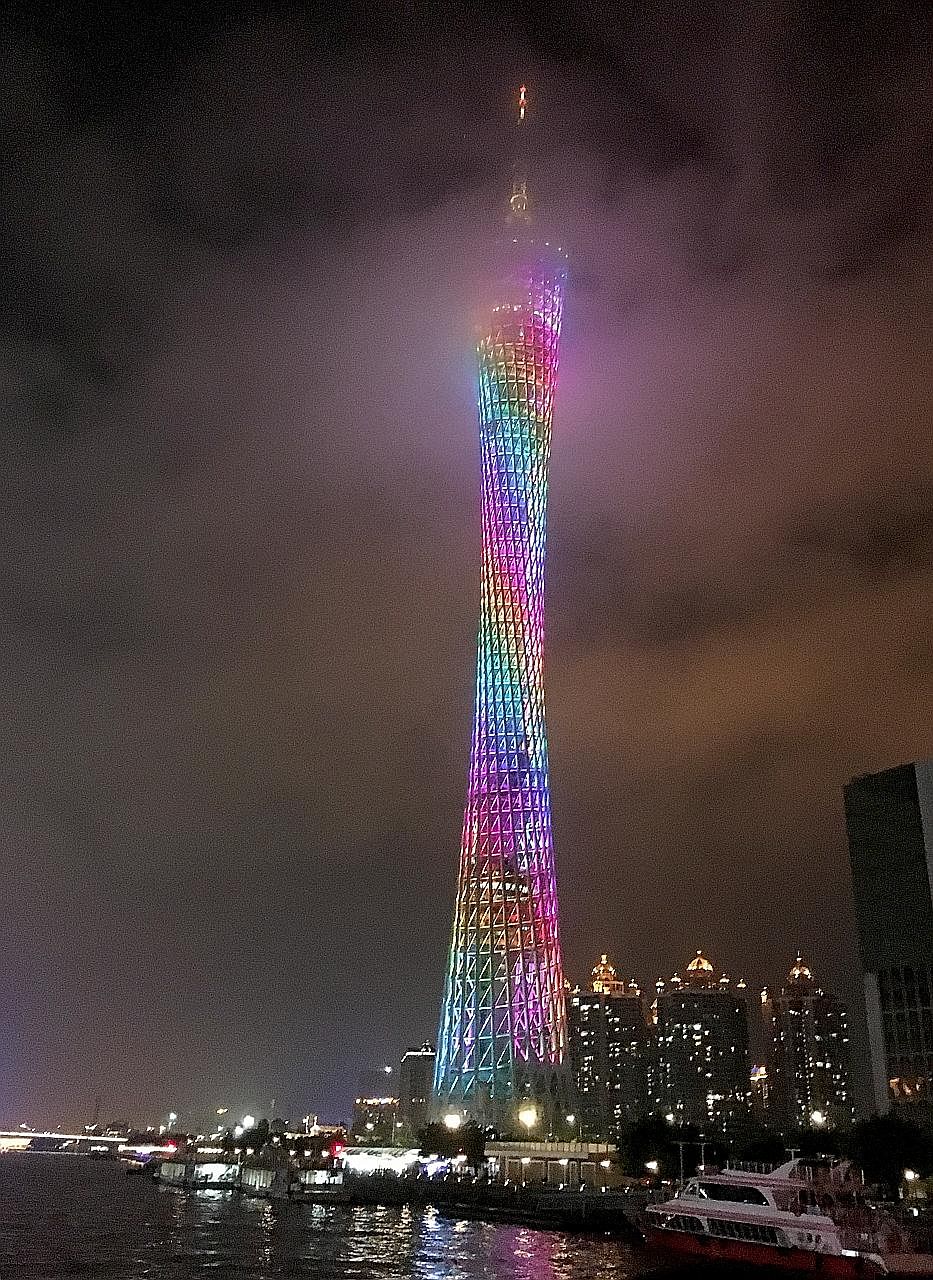At one glance, it looks just like any other convenience store selling snacks, drinks and toiletries - except that there is no shop assistant.
To enter, one has to use a mobile phone to scan a QR code on the door. And to leave the shop, one has to repeat the process and pay for the purchase via a mobile payment system, before the door will unlock.
Called "Easy Go Future Convenience Store", this shop at a commercial building in the heart of Guangzhou is operated via a mini app programme embedded in the ubiquitous mobile messaging app WeChat. Mini app programmes give users access to third-party apps without having to download them. They were introduced last January as a new function in WeChat, described by some as the most powerful mobile app in China.
WeChat - based in Guangzhou - has an ecosystem of mini-apps that enables users to do a wide range of tasks, including taxi booking and hotel check-in.
The local authorities say the birth of WeChat in this city of more than 20 million bears testament to Guangzhou's draw as a test-bed for innovation and entrepreneurship.
This comes as the city works hard to move from "made in China" to "created in China".
Guangzhou, one of the key cities on the Pearl River Delta that spearheaded China's opening up 40 years ago, was called the "factory of the world". It was a major driver of China's export-led, manufacturing-based growth. But in recent years, it has fallen behind Shenzhen in the race up the innovation value-chain as China restructures its economy.
Guangzhou also risks losing its talents to Hangzhou in Zhejiang province, and Nanjing in Jiangsu province if it does not focus more attention on improving its policies, noted Ms Li Quliu, vice-president of Leafun, a firm that provides sound, light and video products to the creative cultural industry.

-
$405b Economy of Guangzhou city.
$21b Revenue expected when Guangzhou's IT zone is completed in the next three to five years.
80,000 Number of people expected to be employed.
To continue to keep its economy of 1.96 trillion yuan (S$405 billion) - nearly the size of Singapore's gross domestic product - humming, the city is trying to transform itself into a magnet for high-tech industries and venture capitalist funds. It wants to concentrate on information technology, artificial intelligence and biomedical sciences.
It has set aside a 370,000 sq m area just a 10-minute drive from its new central business district to be its Internet powerhouse. In the 21/2 years since its inception, the Pazhou Internet innovation cluster has drawn 17 tech giants including Alibaba, Tencent and Xiaomi to invest 63 billion yuan in building their regional headquarters there.
When completed in the next three to five years, the IT zone is expected to generate a revenue of 100 billion yuan (S$21 billion) and employ 80,000 people, officials told reporters during a recent media trip organised by the Guangzhou municipal government.
In the same district, a former car market is being converted into a 120,000 sq m venture capital town. "This town is a microcosm of how the city moves up the value chain," said Mr Sun Haifeng, CEO of Guangzhou Venture Capital Town. "We are a real-life example of how Guangzhou has transformed."
The aim is to attract 10 venture capital funds to set up shop, bringing along the start-ups they have invested in. So far, it has attracted a global player, IDG, and several local funds. Within the next three to five years, it aims to reach 50 billion yuan in assets under management.
Asked about the city's appeal for high-tech companies, Guangzhou publicity department's deputy director general Zhu Xiaoyi cites its livability, listing the city's cultural heritage and educational and healthcare resources as its biggest advantage. "We also have the most rational and stable property prices among all first-tier cities."
Guangzhou's housing prices are, on average, less than half those in Beijing, Shanghai and Shenzhen. A report by the Chinese Academy of Social Sciences and the United Nations lists Guangzhou as one of the best places to live in China.

